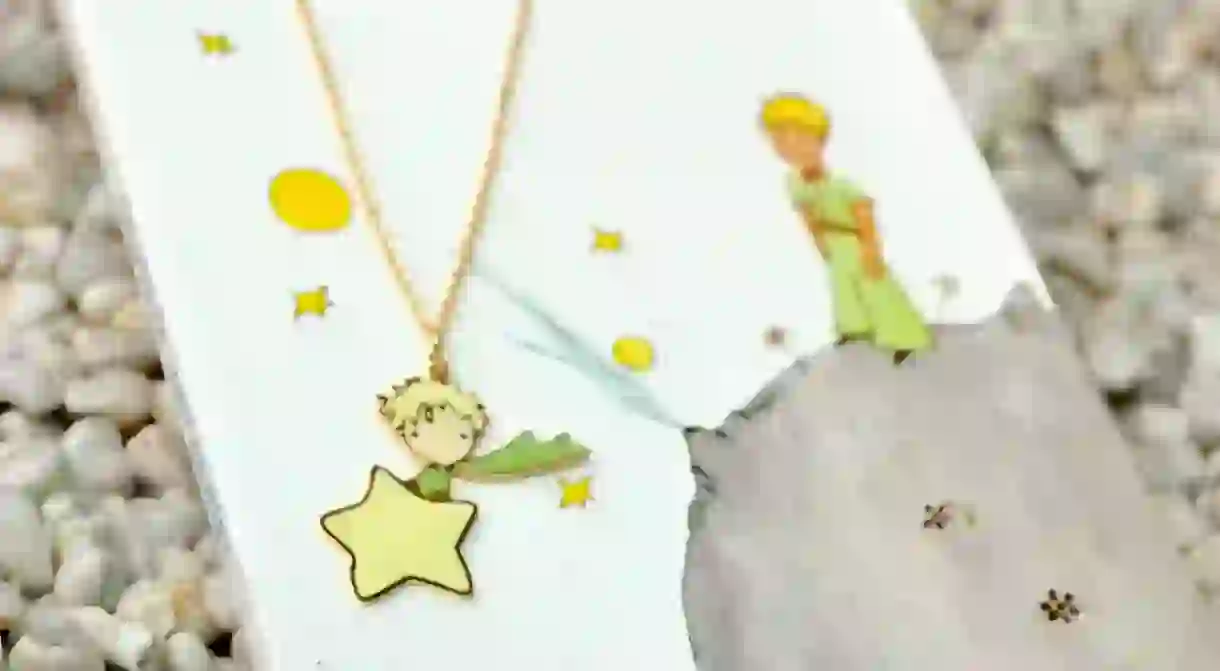Why Adults Should Read the French Children's Book 'Le Petit Prince'

Le Petit Prince (The Little Prince) (1943), is a poetic children’s book written by Antoine de Saint-Exupéry. Voted the best book of the 20th century in France and translated into 300 languages, here are some of the many reasons why people—adults and children alike—are still buying nearly two million copies each year.
Le Petit Prince is a poetic tale with beautiful watercolour illustrations describing the adventures of a pilot stranded in the desert. He meets a young prince visiting Earth from a tiny asteroid in the sky, and this encounter unfolds into philosophical reflection with biting social criticism of the adult world. We could learn a thing or two from his adventure.
Money isn’t everything
The fourth planet that the prince visits is inhabited by a businessman. The huffy man is too busy counting the stars in the sky to relight his cigarette that has burned out or pay much attention to the prince. When asked by the prince what he plans to do with these stars, the pointlessness of the capitalist pursuit is illuminated in all its hilarity when the businessman replies, ‘Nothing. I possess them. It’ll make me rich, which will help me buy more stars’.

Too small to clean out volcanoes
The prince visits a planet with a gently bubbling volcano that the planet-dweller sweeps each morning with a brush and compares the volcano to a chimney fire. His care and attention to the natural environment that surrounds him is what keeps his planet safe. The snide comparison that people on Earth must be too small to clean out their volcanoes and stop them from erupting is a little reminder that humans are not the masters of this earth but the other way around.
Please don’t shoot me, tame me
This book was written during World War II. When the fox asks to be tamed, saying something along the lines that adults are so caught up in violence and its aggressive chase that they have forgotten how to ‘create links’, he refers to the stupidity of war. But it can also apply to our changing notion of making friends. We have social media, but can 1,000+ virtual acquaintances really equal the true care of one?
I just don’t have time
The fox has a very good point when he says that ‘men have no more time to understand anything’ while being swept up in the busy ebb and flow of modern life. He also says that we ‘buy things all ready made at the shops. But there is no shop anywhere where one can buy friendship, and so men have no friends any more’. The art of friend-keeping needs more work, he suggests.

Dark before the dawn
The flower explains how she must endure the caterpillars that crawl across her leaves if she wants to meet the butterflies. This beautiful image is a metaphor for patience and never losing hope. In the same vein, darkness always comes before dawn and we must endure winter before we can enjoy summer.
You see with your heart
At its core, this story is a love story between the prince and his rose. The essence of the tale—that love is the only thing that matters—is voiced by the fox when he says that ‘One sees clearly only with the heart. The essential is invisible to the eye’.
Be more imaginative
Adults should be less uptight and let themselves be carried away by imagination more often. This is one idea that plays out from the very first pages when he remembers drawing a wonderful picture of a boa constrictor that had swallowed an elephant. The adults, seeing only the surface possibilities, misinterpreted this masterpiece as a hat, and the child had to draw the interior of the boa constrictor in order for them to understand.
Selflessness
The unquestioned selfless loyalty to a higher cause is a virtue admired by this book. When the prince visits the fifth planet on his journey, he discovers the curious habit of a street-lamp lighter who lights a street lamp every night. There is no population nor any houses on this planet.
The relentlessness of this action seems absurd, but when taken in the context of World War II and being signed up to fight highlights the admirable and brave selflessness of being a soldier who follows orders—even when they seem absurd—with the belief that is for the greater good.
Overthinking
People tend to overthink sometimes, something the author tries to tap into through light criticism. These worlds may be absurd and impossible, but that doesn’t mean that they don’t hold true. It’s a truth that doesn’t need to be backed up by facts and figures, stresses the author. There are limitations to factual knowledge.

We were all children once
The book opens with the stark reminder that ‘big people should remember “they were all children once”‘, saying that few of them do. He criticises the adult tendency to get caught up in ‘chiffres’ (facts and figures), instead of reaching out for the values that truly matter like love and friendship, or the virtue of patience.













